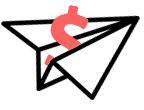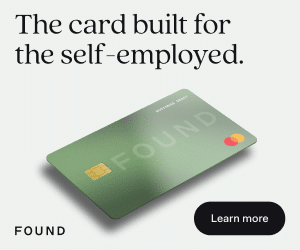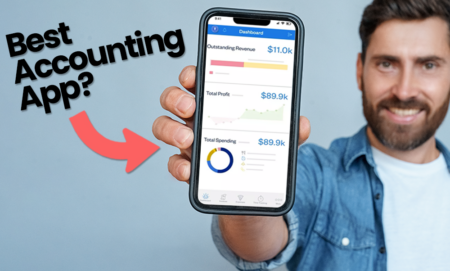Y’know that guy – one of your peers who always seems to get the very best clients? He who:
- Never has a problem with late payments.
- Doesn’t have to haggle pricing on rush projects.
- Makes handling a client misunderstanding sound like a stroll in the park.
That guy may very well have good luck in finding clients, but chances are he’s great at forming and managing client relationships too.
He knows how to become more than just a Photoshop guru or code monkey because he knows that it’s often the intangibles over talent that creates a great long-term relationship.

Get Weekly Freelance Gigs via Email
Enter your freelancing address and we'll send you a FREE curated list of freelance jobs in your top category every week.
And with these tips, so will you.
Use “we” instead of “you” and “I”
Fostering a good relationship with your client means making it a team effort even when you’re not there to slap high fives and have a round of beers.
So when talking with your client, use “we” instead of “you” and “I” to create a team atmosphere.
- What we can do/need to do here is…
- We need to determine who our audience is.
- I like where we’re headed.
Establishing yourself as part of their team does several awesome things for client relationships:
- It’s harder to push blame around. Successes and failures all belong to the group.
- Everyone is more likely to be seen as equals, discouraging your client from treating you like a minion.
- It’s harder for your client emotionally to decide to leave you for someone else.
Bonus! Using “we” with potential clients subtly and subconsciously already brings them on board as your client. It’s much harder for them to say “no” when you’ve already positioned yourself as a member of their team.
Acknowledge client communications even when you can’t handle it right now
Despite popular belief, we aren’t always immediately available to handle our clients’ request. However, that doesn’t mean we should totally ignore client communications until we can handle it.
At your next convenience that day (sooner if it’s an urgent or urgent-sounding request), simply shoot off a quick text or email acknowledging that you’ve received the message and that you will handle it just as soon as possible.
- Hi Jeremy! Thanks for the email. I have a conference call in 5 minutes, but I’ll call you later today. Does 4pm your time work?
- Anne – got your text. Out with a client right now but will call at 3pm. Talk soon!
Now your client knows you’ve gotten the message and are willing to help even though you’re not available right at this moment.
Learn something personal about each client
(I’m not talking about blackmail.)
Whether it’s what their birthday plans are, where their youngest child is going to college, or that they play impromptu jazz saxophone on Saturday nights, connect with your client on a personal level.
Then ask about whatever it is from time to time.
- How is Sofia liking Florida State?
- How was Canada? What’s the one thing I HAVE to see in Toronto?
This makes it harder for your client personally and emotionally:
- to replace you
- to treat you like an underling
- to be angry and heated in a misunderstanding
- not to give you first dibs over other freelancers they work with on the next project
Announce vacations/days off well ahead of time
Yes, entrepreneurs CAN go on vacation (see how here)!
Shocking, I know.
But if your clients are anything like mine, they ALL suddenly need something 2 days before vacation starts. So when you do take more than a day off here or there, let your active clients* know about one month in advance.

This gives them the opportunity to get little tasks completed before you leave while not disappointing them when you aren’t available mid-vacation to pump something out before the deadline.
*I consider active clients any I’ve had communication with over the past 2-3 months, or those with regular or semi-regular recurring projects.
Pro tip! In the US at least, taking “too much” vacation equals a negative to all the working stiffs who only get one week per year. So if you’re gone a lot, you don’t have to cop to yet another vacation (even though you’re packing for the Bahamas). You can claim continuing education, a conference, or you don’t have to say why you’ll be out of the office at all.
Avoid using “you” in confrontation/mix-ups
No finger-pointing.
When you and your client have an inevitable problem, miscommunication, or mistake, never make the client feel like you’re targeting them. Using “you” automatically puts your client on the defensive and creates an “us versus them” mentality.
- Instead of “you misunderstood me,” try “I think there’s been a misunderstanding.”
- Instead of “you didn’t send me your information,” try “I don’t have the necessary copy.”
- Instead of “you told me to use purple,” try “I have in my notes that we agreed on the color purple.”
In fact, avoid placing blame altogether. Correct the situation if possible and discuss how to prevent it from happening again, because it really doesn’t matter who’s most at fault (and if it does, it might be time to fire your client).

We’re a team, remember?
Treat the staff as well as you do the boss
Just because you don’t answer to your client’s secretary or their mediocre (at best) in-house designer doesn’t mean you have a license to treat them like minions. (This goes for wait staff when you’re meeting a client for lunch, too.)
Supporting staff report how you treat them to their bosses, particularly if it’s negative. You don’t want to look like a total jerk when you think your business is not on the line.
And if your client gets replaced, you want someone else in the company putting in a good word for you to the new gal.
So no matter who you interact with over the course of a project, be pleasant, courteous, and respectful. You’re likely strengthening your relationship when many others won’t make the extra effort.
Pro tip! Learn staff names and keep them in your client notes. Not only will they respond well to you (i.e. move your project along faster or prioritize your invoice), but also your client will notice – and be impressed – when you can speak about their team without referring to “that guy in production.”
Listen more than you speak
In most cases, clients love to ramble on…err…present valuable information. But hey, that means they’re excited about their project, and that’s what you want them to be (because then they’re going to be super-thrilled when you knock it out of the park).

So ask questions that get them talking, and then listen. Really listen (and take notes). You’re going to sound amazingly attentive when you refer to details they mentioned a month ago like you savored every word of the conversation.
And when they ask for your opinion or expertise, present your information clearly and concisely. Then stop talking.
(We often think we sound more important and knowledgeable when we drone on, but quite the opposite is true.)
Smile when you answer the phone
Someone once told me, “Smile when you answer the phone. The caller will hear it in your voice.”
They were right.
(Go ahead, try it right now. Smile and try not to sound upbeat and ready to tackle the world. Just the act of smiling will put you in a more positive, helpful mood.)
Remember the last time you called a company intending to spend money with them and the person on the other end made it sound like you interrupted their busy day? If you’re anything like me, you found someone else at another company who sounded more interested in helping you.
The same is true for your clients – even the ones who love you. Nobody wants to feel like they’re an annoyance, an interruption, or a hassle.
So make them feel like your most important client and brighten their day at the same time…it all starts with a smile.
What can you add?
Do you have any so-simple, often overlooked tips that are key elements of creating great client relationships hiding in the shadows? Drop a note in the comments and share your best advice!
Keep the conversation going...
Over 10,000 of us are having daily conversations over in our free Facebook group and we'd love to see you there. Join us!




Hey April, as a (relatively) small business owner – I have to say that I really loved this article! You’ve got some excellent tips here about maintaining healthy and solid client relationships. I think sometimes it can be really easy to lose client relationships over time as so often the focus seems to be on finding new clients rather than taking care of the older clients. So it’s great to see an article like this which addresses this all too common problem! However I’d probably add one thing to your fantastic list – and that’s essentially really to invest in some CRM software. I myself have only recently invested myself in CRM software but I can vouch that it is one of the best business decisions I have made in a long time. I now have a wealth of knowledge at my fingertips and have my clients and their relevant information completely organised (which is incredibly refreshing compared to how it was previously). I would wholeheartedly recommend CRM software to every and any business owner – I can promise you that it will change your whole business for the better.
Thanks for sharing this great article of how we should handle clients even when talking on phone with them. I really really love this tips
I appreciate using “we” with clients–and also creating a solid contract beforehand to negate any conversations on timing, money, scope becoming personal. It never has to if I’ve covered all the bases in a reasonable way. One thing I don’t do is fib that I’m with a client. No need. I simply relay I’m out of the office, offline, away at the moment and will return their call, email, correspondence at x time. I don’t owe a client–or anyone I have a professional relationship with–further explanation than to remain in contact with them. 🙂
Great article! Wish I read it earlier, I had a relatiinship go sour as neither of us felt to be on the same team. But learned and keep going. Taking notes on the small details is also so important… I often think i will remember, but of course I don’t. Will refer to this article in the future. All points are great!
Luba,
Sorry to hear a relationship soured, but the good news is you’re learning! (I just had one sour on me today, so sometimes it still happens when you and a client aren’t a good fit.)
Good luck going forward!
Thanks April – usefull article for any business pro
> I’ll update my clients DOB to my calender (to remind me every year) to wish them at mid night. i.e. Using boomarang app (schedule mailer) in gmail.
Thanks for sharing!
Ravi,
Automating these personal reach-outs is great – just make sure it doesn’t sound automated or all of your “How cool he remembered?” goes right out the window. I’d also change the time it sends to a more normal waking hour…and at an odd time, like 7:22am, so it looks like you realized it was his birthday and shot off an email.
Great idea!
Great tips April.
As someone who spend most of the time dealing with clients and building relationship with clients, I know that “we” part very well. One of my friend taught me that. And that thing about getting a little personal with client is spot on. This perfectly defines my attitude with my clients.
Great Read. Now I know I am not alone when I say that I am with another client, while actually I am playing DOTA lol.
Warcraft nerd! 🙂 (I’m a gamer, too.) Hey, that’s cool that you make time for yourself to relax and have fun. That mental release brings you back with a ton of clarity and creativity!
Love it, great list. I think my biggest thing i’ve found that keeps clients happy is managing their expectations. Making sure to clearly define what has, is currently, and is going to happen so that they do not feel lost or have expectations that you do not meet (because you did not know they existed).
Dorian,
Agreed! Good communication is key to a great client relationship.
Thanks for sharing!
This time I agree 1000% with the tips described.
All of them work as described. I can tell because I do that as a part of my natural behaviour whenever I’m with PEOPLE. Some of them happen to be also CLIENTS.
Even with the summer vacation thing I always ask around june how will they handle this period, and to be honest, after years of happy continued work, it comes out as a natural chat the same way it arises with my regular mates on a beer; BTW, I already knew weeks ago how they will handle Thanksgiving and I already know how, when and where they will be spending their xmas holidays… and what is also important they also know mine so we can sync to not losing the scope of time and deadlines…
The use of “personal” pronouns is forbidden here; not that is a written norm but everyone shares the same profile in the studio and I never had to tell anyone how to behave, it just comes out as it is. Instead, we always use collective-inclusive ways of talking.
After all, we build teams in which some people lead the idea and/or objectives (client) and we ride along with them in the same car and no matter who is steering.
Of course not every client happens to be as easy going or lets you such space, but such advices still will work in a way or on another.
Hi Juan,
It’s true – these tips don’t just make great client relationships…they make great people relationships.
Thanks for pointing that out!
Thanks April – well done! Again! In the end it’s all about relationships – why should clients be any different. Always something new to learn.
Thanks, Del Carry! Hope these help your business succeed.
Oh absolutely agree with you on these. Slipping up on the all important “we” when discussing a problem can break a client relationship, been there and earned the diploma! The mistake once made is never repeated!
You’re so right, Sharon!
One word can make all the difference, and the smart entrepreneurs like you learn the first time.
Thanks for sharing!
These tips are very helpful because they helped me pay more attention to thinks that were commonly looked over.
Very Nice work April, thank you for the post.
I would add a couple of things:
1. When making out a timeline for deliverables, pad all milestones and deadlines so you don’t just meet a deadline, you BEAT it. Clients love love love when a project is delivered ahead of schedule. Especially if they’ve been burned in the past…
2. Once you have worked with a client for more than a year on several projects, when they call about a relatively SMALL thing they need, I will sometimes do these little jobs for Free and a lightning speed. Crank it out and tell them not to worry about payment. You become someone they TRUST to get shit done. They remember you when the larger projects come across their desks and you become their go-to person because you’ve come through for them in the past.
Thanks again for the post!
Vince
Hey Vince,
GREAT additions! Always under-promise and over-deliver. Always!
I do the same thing with my best clients…I’m not going to send a $20 invoice to someone who has spent $7000 with me annually and pays on time reliably. (as an example) That’s part of the perks of being a great client, and when they don’t feel nickel-and-dimed, they’re happy to pay fair value for the top-notch quality you’re going to give them.
THanks for sharing!
Great advice April! While I already regularly employ most of these tactics myself I think this is a post that’s worth revisiting regularly as a reminder. It’s sometimes as easy to fall out of ‘good’ habits as it is to fall into bad ones.
Paula,
Especially when we get busy or have personal things adding to our stress levels, it’s easy to be more curt and to the point. While there are appropriate times to be “all business,” a little humility and humanity go a lot further than the business world would have you believe. We’re all just people at the end of the day.
Thanks for commenting!
Oh April! What a great read, such worth notes to take down. I especially like the pro tips of “been with a client”, glad to hear I’m not to only one running errands sometimes 😉 the benefits of being freelance!
Thanks, Belinda!
My boyfriend laughs at me when I’m covered in dirt and “with a client.” Well, at the moment, my garden IS my client! 🙂
Freelancing is great, isn’t it?!
Great article April. It reinforces a few things I do now and reminds me to brush up on a few others. I must admit the one tip I still feel a little weird doing is using ‘we’ during conversation when I am a one person shop. (i.e. we will get started on…)
Thx
Eric,
Oops, didn’t mean to confuse: you don’t always have to use “we,” but when discussing your planning or goals, you want to be part of their team. If it’s just you, I encourage you to use “I” when referring to what you specifically are going to do.
Example: “Yuri, I’ll get to work on these concepts. Let’s make sure we’re ready to print by the 15th so we’re ready for the product launch.” — here you’re including yourself as part of their team. It feels more like a collaboration.
Instead of: “Yuri, I’ll get to work on these concepts. You need to sign off on the design by the 15th so your product can launch.” — here you’re separating yourself from their business. It feels very that is yours; this is mine. Don’t mix them.
Does this clarify? Sorry again with the misunderstanding.
April